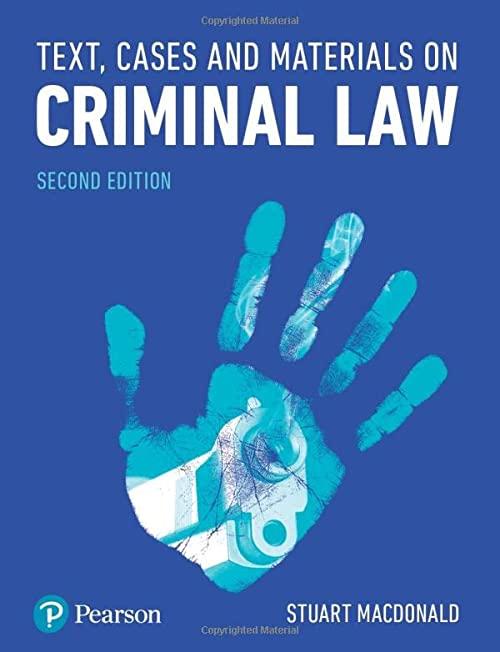Question
Jake agrees to sell his house to Thomas for $250,000. Jake and Thomas agree to all of the terms of the sale. They put their
Jake agrees to sell his house to Thomas for $250,000. Jake and Thomas agree to all of the terms of the sale. They put their agreement into writing, but Jake never signs it. The agreed upon date for completion of the sale (the "closing date") approaches, and Jake informs Thomas that he has changed his mind. Thomas asks Jake if he is being serious, and Jake says, "Yes. I am keeping this house. There is no way I will change my mind, and there is no way you can make me sell it to you." Following the general rules of contract, which of the following is most accurate regarding whether Jake has breached a contract with Thomas and whether Thomas can obtain a remedy in court?
Jake breached a contract, and Thomas can obtain the remedy of specific performance.
Jake did not breach a contract because a contract never existed; accordingly, Thomas would have no legal remedy.
Jake breached a contract, but Thomas will be prevented from obtaining any remedy through the courts because of the statute of frauds.
Jake did not breach a contract yet because breaches can only occur after the time for full performance has arrived.
Step by Step Solution
There are 3 Steps involved in it
Step: 1

Get Instant Access to Expert-Tailored Solutions
See step-by-step solutions with expert insights and AI powered tools for academic success
Step: 2

Step: 3

Ace Your Homework with AI
Get the answers you need in no time with our AI-driven, step-by-step assistance
Get Started


